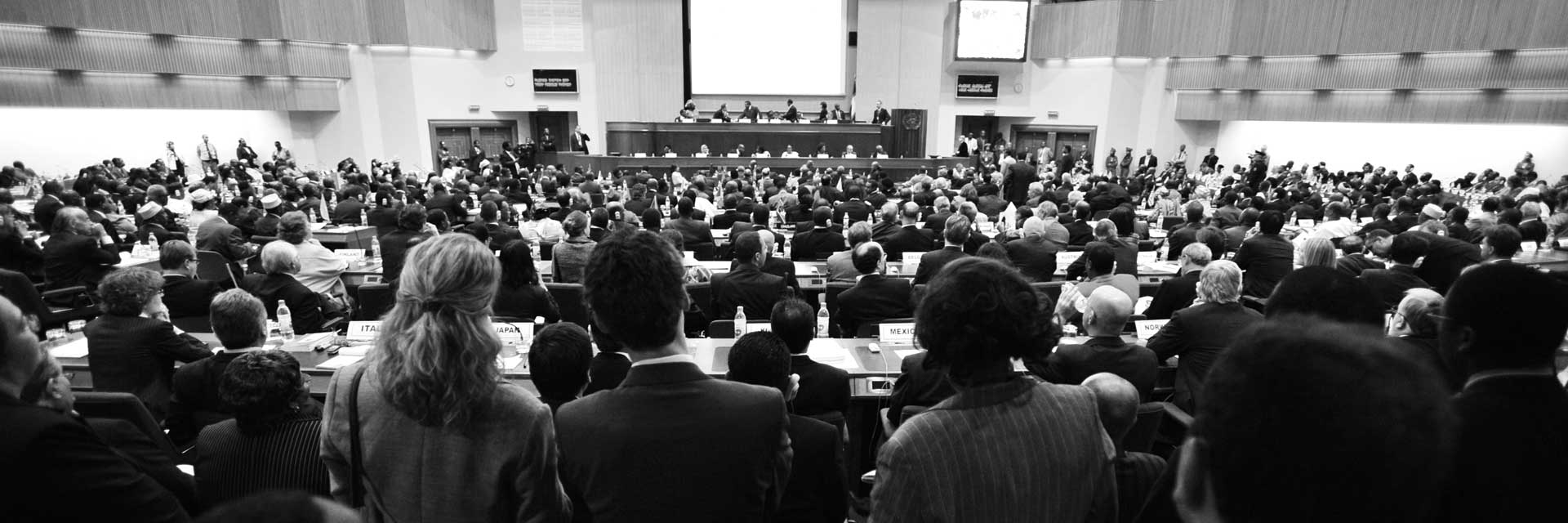As the role of the general counsel in today’s modern corporation continues to evolve, the roles and responsibilities they are expected to fulfil has expanded exponentially. Chief among that growing mandate has been an expectation that the GC is not only an expert in their trained profession, but an effective manager and business partner.
While filling the role of lawyer and meeting the traditional expectations of the position will come naturally for most, managing personnel is for many, a more challenging prospect. In the contemporary business environment that only stands to grow tougher, as the next generation – dubbed Millennials – stand to infiltrate, before dominating, the ranks of the legal profession.
But while Generation X were defined by declaring their independence and the baby boomers who preceded them were known for value-driven hard work, these moxy-filled Millennials who are set to have such a marked impact on the future of the workforce at large, remain something of a mystery to those tasked with managing and developing their talents.
So just who are Millennials and what will their influx into the legal sector mean for the wider profession?
Just who are millennials?
Given how broadly applied the Millennials term has become, it is useful to set out some definitions. The term is often attributed to authors William Strauss and Neil Howe, who coined the expression in 1987. Though Howe and Strauss later put the range for Millennials as being born between 1982 and 2004, over the years it has been popularised to refer to those born as early as 1980 – even occasionally as early as 1975 – though not generally later than 2004.
Millennials are differentiated from two other major generational groups, Generation X, born between the early 1960s and early 1980s, and the Baby Boomers, born in the wake of World War II. Conventional wisdom says the three groups have distinct attitudes and traits. Following Gen X, Millennials were at first more commonly dubbed Generation Y – the Gen Y phrase was popularised initially in 1993 by the magazine Ad Age – though Millennials became increasingly common over the last 15 years, squeezing out other proposed names, such as ‘Generation We’ or the ‘Net Generation’.
The range of who is covered by Millennials limits its focus, spanning people not yet teenagers through to workers in their mid-30s.
Millennials form an increasingly dominant part of the workforce. According to statistics from the US Census Bureau, there are over 80 million Millennials in the US alone. On most projections, that group will constitute over half the workforce in ten years across the major economies.
There are differing traits given to the group, though some common ground is accepted among almost all academics – at least with Millennials in western economies. Most obviously, the group is liberally-minded, taking a tolerant attitude towards issues like gender equality and sexual politics. Engagement with conventional politics, conversely, has fallen with this generation. Sizeable ongoing research by the University of Michigan and at UCLA found the group was less focused on political events than Baby Boomers and Gen X.
Having grown up in the age of the internet, smart phones and social media, the group is unsurprisingly identified as technologically adept. The generation is also agreed to be individualistic, despite putting a focus on their own social groups, a dynamic the US Pew Research Center articulated in a 2014 report as ‘detached from institutions, networked with friends’.
‘We call them the sticker brigade,’ says Maggie Stilwell, managing partner for talent at Big Four accountancy firm EY. ‘They have grown up in an environment where they have been praised and given a sticker for doing well, and this is an expectation. They see fewer limitations in what they can achieve. They are happy to move around to get what they want.’
If this ground is largely agreed, the terrain becomes rockier with attitudes towards life and careers. Here, there is considerable disagreement between those who take a positive or negative view. While Millennials are often cited as having the confidence and self-possession often seen as lacking in Gen X workers, plenty of researchers cite narcissism and a pronounced sense of entitlement when describing Miillenials – hence references to the ‘selfie generation’.
Conversely, others cite Millennials as caring and community-oriented, noting greater involvement in social issues – a tendency that many in corporate life view as translating into more focus on corporate social responsibility during their career. The contradiction may be explained in that Millennials’ altruistic energies are more likely to be channelled through single-issue campaigns rather than organised political parties.
So what’s the challenge, then?
Conventional wisdom has it that Millennials are less focused on long-term career decisions and committing to employers, instead focusing on short-term development and immediate feedback. Nevertheless, the group strives for material success. In western economies, the group that grew up in the time of relative plenty identifies wealth as more important than earlier generations, particularly the Baby Boomers, in much research.
This picture is echoed in research focused on the legal sphere. In the 2015 article ‘Leading Millennials’ by INSEAD’s Henrik Bresman. Together with Heidi Gardner and Samantha Sheehan of Harvard Law School, the trio cite research based on 16,637 Millennials in 43 countries. Their work published in the book Leadership for Lawyers, notes the group is focused on empowerment, personal development, flexible working and work/life balance, arguing law firms needs to overhaul their processes to engage this new generation.
But even accepting this ground, the problem with dealing with younger workers is identifying what – if any – are traits of Millennials rather than wider shifts in society or generational differences. What is a manager of lawyers to do?
Much of the confusion in dealing with young lawyers is because many of the supposed qualities of Millennials fail to stand up to scrutiny. For example, one of the largest polls of employee attitudes by consulting firm CEB, which surveys 90,000 US employees every quarter, flatly contradicts the popular image.
Its research puts Millennials as more competitive and career-minded than older generations. A CEB survey in 2015 found 33% putting ‘future career opportunities’ as their major priorities in joining a company, ‘against 21% for other generations’, while only 35% cited CSR policies, against 41% for Baby Boomer respondents.
Likewise, research cited in the ‘Managing Millennials’ article states over 60% of Millennials view becoming a manager or leader during their career as ‘important’ or ‘very important’, and notes that the group put high emphasis on securing promotions and salary increases.
A wider problem is the conflation between wider shifts in society as workers of all ages adjust to changing economic circumstances, new technology and evolving cultural values. While there is no doubt Millennials are more individualist, socially liberal and tech-addicted, this reflects wider changes in western society, as illustrated in a series of major research projects, including ONS data from the UK Office for National Statistics.
Likewise, Millennials may have been digital natives, but older colleagues are rapidly catching up. Numerous research has identified rocketing levels of internet and social media use among Baby Boomers. Middle-aged lawyers were famously among the first ‘Crackberry’ addicts of smartphones, leading to work and leisure time blurring.
Human experience has been hugely shaped by technology for the last 200 years, much of it like the motor car, electricity, telephone and air travel having an impact on life more transformative than any smartphone. Prominent venture capitalist Peter Thiel famously dismissed the lack of historical context of digital economy utopians, noting how far expectations have been lowered: ‘We wanted flying cars, instead we got 140 characters.’
As has been noted by a number of academics, supposed defining traits of Millennials are often the result of the term being used as a proxy for a relatively small group of privileged highly-educated workers in the west. The sense of entitlement and expectation is in part probably linked to widening social inequality in western economies and well-established policies of major law firms in recruiting from a narrow band of graduates at elite universities.
KPMG head of human resources Martin Blackburn comments: ‘We will never attract the level of diversity we want if we just depend on the Millennials. That’s why we have apprentices and other routes to access. We want to reach out to a diverse range so we target certain schools nationally and recruit in specific areas. We have to go outside of the Millennials for this.’ PwC’s Andrews takes a different angle on the same point: ‘This is a very western view. In emerging markets or Bric countries, Millennials have a different perspective on what they want.’
Much discussion of Millennials neglects even the reality that this generation has developed in a specific economic context – one of continued globalisation, disruptive technologies and companies that are increasingly short term with their employees. It is hardly a stretch to conclude that Millennials – recognising fewer industries are offering anything resembling a job for life – are less inclined to offer long-term commitment themselves.
The group has also grown up in a period in which the cheap housing, education and pensions enjoyed by previous generations are gone; some academics argue that the defining characteristic of Millennials is that they will be the first generation in recent history to be poorer than their parents.
Extending life expectancy also means the group will be forced to view their career path as a longer and winding road. In place of the concentrated 30-year run to retirement in the mid-50s, which was a dominant goal for Baby Boomer and older Gen X workers, Millennials face a marathon with a few detours and breaks along the way. Demographics aside, changing gender roles, including greater expectations of parents sharing child-rearing, further underpin the changing demands of the workforce for flexibility.
Andrews says employers should focus less on Millennials in isolation and more on shifting demographic and economic realities. ‘The biggest challenge is that we will end up with five generations working together with many different working styles. Thinking through how you create an environment tailored to those, to help them be as productive as possible, is as critical as merely addressing the Millennials piece.’
In-house do it better
There is no question that the legal profession will in future be forced to respond to changing attitudes among junior lawyers, given the profession’s intense focus on recruiting and retaining talented young lawyers. However, it is not apparent that treating those as a distinct tribe under the badge Millennials is the best way to tackle the issue. In many regards, the term results in misdirection and confusion.
The tensions in the profession attributed to Millennials are real, though in many cases have been aggravated by law firms themselves changing the deal in how they recruit and manage staff, and showing less loyalty.
The frustrations of the current generation are also relevant because those within the group have more options as lawyers, both to work freelance or in-house, a branch of the profession that has expanded dramatically in the last 20 years. The Law Society figures show there were less than 3,000 lawyers working in commerce and industry in the early 1990s in England and Wales, against around 15,000 currently. The consensus in the profession is the flexibility and autonomy of working for a company delivers higher career satisfaction for many lawyers than private practice (a 2015 survey by The In-House Lawyer found 76% of respondents citing themselves as ‘satisfied’ with their career, and 74% seeing themselves having a long-term career in-house, based on more than 450 respondents). These levels of satisfaction are well ahead of comparable results across a range of surveys of law firm associates in both the UK and US over the last 15 years.
Maria Leistner, general counsel wealth management at UBS, formerly of Credit Suisse, argues that in-house teams can struggle to accommodate the demands of junior lawyers for training and development but have done better in offering flexibility to more experienced lawyers with a solid grounding from private practice.
‘We have done a lot to tackle the wants of Millennials but even men my age are also a different generation to our parents where the father never saw his children. When you go through that pre-Millennial generation… my husband wants to balance spending time with his children with having an interesting job. Our generation want different things too. Even if you look at the outstanding people that went in-house ten years ago, [they] were looking at work/life balance differently.’
Increasing numbers of young lawyers are opting for a well-paid in-house or freelance career with more control over their lives than an incredibly well-paid one with very little control and the uncertain promise of partnership. (Claims that there is more demand for lawyers in other industries in non-legal roles are far harder to find supporting evidence for and are probably just wishful thinking by stressed associates.)
Claire Chapman, group counsel and company secretary of Daily Mail and General Trust, warns that established lawyers have yet to grapple with the challenge of changing roles in the face of technology. ‘I feel very strongly about those already established in the profession now getting a bit long in the tooth – they have a role to play in mentoring and coaching, looking after people coming through.’
‘The roles traditionally done are being automated – what are their jobs going to look like in the future? What are the skillsets they will need? In the future firms need to consider that and further consider that people today will consider a myriad of factors to be happy – it’s not just one firm for life anymore or even one career. People find that unnerving – I wonder how the partnership model will adapt to that. It’s a really tough time. I see young people coming into law and there are insufficient roles for everybody.’
There is considerable evidence that a wider approach to recruitment focused less overwhelmingly on recruiting a narrow band of privileged graduates would have some mitigating impact by ensuring the legal industry has a proportion of young lawyers with a drive to succeed rather than a confirmed sense of their own importance. One of the reasons the generation of partners in their late-40s and 50s arguably had drive to commit was that the profession then recruited from a broader range of backgrounds.
In-house legal teams – which have already been prime beneficiaries of the departing flood of talented mid-level female associates opting out of the law firm career track – look well placed to profit from the continued lack of diversity in law firms by picking up a sizeable band of lawyers who feel they don’t fit into the strictures of private practice. In short, the consensus is that in-house teams have done a materially better job of meeting the aspirations and values of Millennial lawyers than law firms.
While some focus on agile working, many interviewed for this article stressed such policies are only a small part of the answer. As one graduate recruitment head notes: ‘Agile or not, you still have to do the work. It does create a mindset of asking if we need to be in the office, but I don’t think that is specific to Generation Y.’
‘Agile working is just a little piece of the jigsaw. If it’s still frowned upon in a law firm, it may be that it’s not really the answer. The whole thing feels a lot more complex than that.’
Ultimately it should be remembered that, at heart, many methods for engaging, retaining, motivating and building trust with junior lawyers are enduring and flexible in a fast-changing age – hiring bright lawyers, giving them interesting work at a level they can handle and ongoing mentoring in a challenging but supportive environment. Many partners concede that old-fashioned mentoring that was more common in smaller law firms in the 1980s and early 1990s was an effective system. It was the law firms that changed more than the aspiring lawyers since then… and not always for the better. Trust and decent treatment goes a long way now as it always has done.
This feature was adapted from an article which originally appeared in Legal Business.


